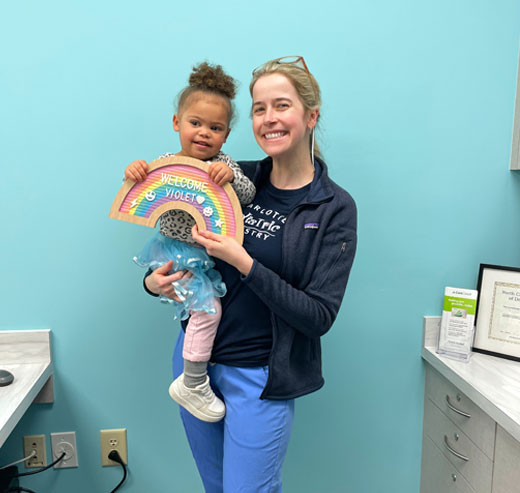As a parent, you know how important brushing is when caring for your children’s teeth (starting after the first tooth is in). What may not be on your radar, but is just as important, is flossing. By around age 2, you should be flossing your child’s teeth daily.
One of the most common dental issues we see in our patients, aged 5-11, is gum disease. Regular flossing is one way to help combat the onset of gum disease. While this all might make sense, the next question that enters parents’ minds is “How do I get my kid to floss?” We have a few suggestions that may be of help.

- Track their progress. Kids love to see how they are doing with a visual guide (even better if there is some type of reward associated with achievement). For each day they floss, you can mark the calendar with a sticker.
- Sing it out. Try singing a fun song with your child. "Floss, floss, floss your teeth. Every single day. Gently, gently, gently, gently, Whisking plaque away."
- Equip them with fun flossing gear. There are several types of colorful flossing sticks that may appeal to your child. While these won’t get the entire job done, it gives kids some ownership (and color!) in the process. Letting them work on a few of the front teeth to see what it looks like will likely make it easier for you to finish out the job. Be sure to double-check their work, as well as floss the hard-to-reach teeth in the back. For the best results, make sure you are using real floss, not the sticks.
- Show and tell. One of the ways kids learn is by watching their parents. Show them, in your own daily routine, that flossing is important by setting aside time each day to do so. Bonus: your own oral health will improve as well!
- Use legos and playdough. For the younger kids, showing them the importance of flossing on dolls or toys can be a great teaching tool. One mom took it a step further and used legos and playdough!
Although it’s vital to start teaching your children the importance of flossing at a young age, they likely won’t be able to do the task solo until they are around 10 years old.

When you come into our office, we will talk with your kids about each step of what we’re doing to care for their teeth (and, of course, flossing is one of those steps!). Reinforcing those concepts at home will help ensure your child has good oral health throughout adolescence and into adulthood.









